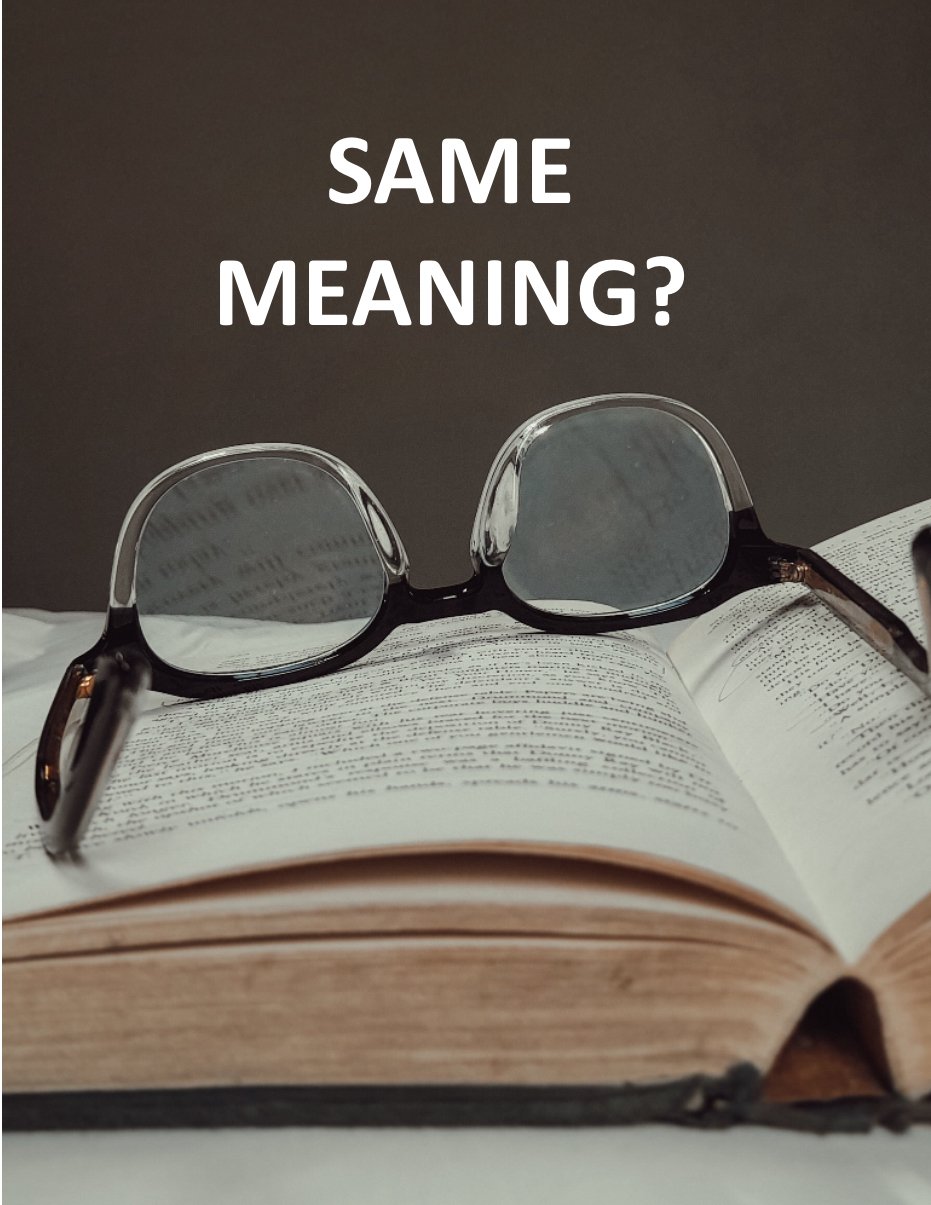Same Meaning?
Has it ever struck you how confusing the spoken and written word is? Our American readers might have a better understanding of this. After all, if I give you the word “date” you would be wondering if I mean a specific day, a way to show age, the agreed upon time and day for people to meet, or even the fruit. You would have to look at the context of the rest of the sentence in order to determine the meaning behind the word. Words can have multiple meanings; not only that, but two words that appear to have the same meaning can in fact mean two separate things.
Take this passage in Proverbs 12:12 for example,
“12 The wicked person desires the plunder of evil people, But the root of the righteous yields fruit.”
This verse comes from a section of scripture that compares the actions of the righteous to the actions of the wicked, so at first nothing seems out of the ordinary. But on closer inspection, there are two words here that you would believe are synonyms of the same definition. Wicked and Evil. For many, these two words would be used to describe something terribly bad, that is beyond repair or remorse. However, when you look back at the original meaning of these words, you will find that there is more to it.
The Hebrew word for Wicked (H7563) is defined as morally wrong, concretely an (actively) bad person, condemned, guilty, ungodly, wicked man that did wrong.
The Hebrew word for Evil (H7451) is defined as bad or evil, adversity, affliction, bad, calamity, displease.
With these two definitions in our minds, we can read Proverbs 12:12 as “The morally wrong, actively bad person desires the plunder of bad, displeased people, but the root of righteous yields fruit”. From this, we can see that those who are actively practicing unrighteousness as described in 1 John 3:7-8 are different from those who are on their own bad or displeased people. The difference is the wicked are those who understand that they are evil, but instead of turning to Christ and walking away from evil, instead continue to practice it. Those who are evil are those who have not come to know a saving faith in Jesus Christ and therefore cannot be apart of His righteousness.
Why is this important? When you take the time to look at the root of a word, especially words that would appear to have the same meaning, you grow more in the knowledge of the scriptures and of God. For those who wish to be able to do this on their own, I recommend getting a Strong’s Concordance. This book allows you to look at the words and be able to take them back to the original Hebrew or Greek. If you cannot find a physical copy, there is an app that you can download onto your phone or tablet.
Seek the truth and encourage one another,
Alex
